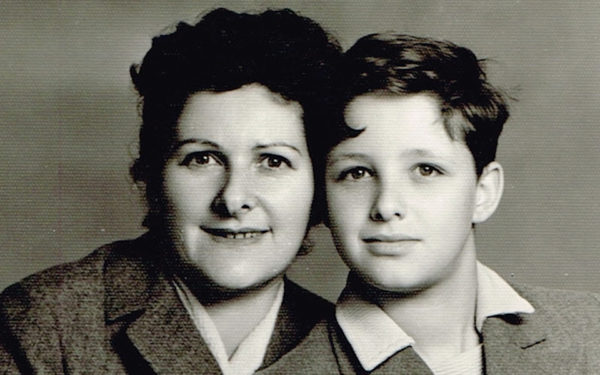Slawomir Grunberg’s documentary, Don’t Cry When I’m Gone, eulogizes Wanda Sieradzka, a Jewish woman whose life was a mirror reflection of the turmoil that engulfed Poland after Germany’s 1939 invasion and occupation.
Premiered at the Polin Museum in Warsaw last year, this absorbing film has since made the rounds of movie festivals and various forums. On May 17, it will be screened at the Josef Pilsudski Institute in Brooklyn.

Like a very small number of Polish Jews, Sieradzka, nee Kahan, lived through the war masquerading as a Christian. Her family perished during the Holocaust, a catastrophe she was never able to internalize.
In postwar Poland, she thrived as a journalist and television personality. But she probably left the most indelible impression as a lyricist, writing the words for such hit songs as Don’t Cry For Me When I’m Gone, Black Eyes, The Rose Was Red and Where Have All the Flowers Gone?
Sieradzka was a poet, too, but Grunberg hardly deals with this facet of her career.

Sieradzka’s story is told mostly through the medium of interviews. Her son, Zygmunt Sieradzki, now an Australian film producer, recalls his mother with a sense of fondness and respect. Her friends provide an array of sparkling recollections and anecdotes.
Born in Lodz in 1923, Sieradzka hailed from a highly assimilated and patriotic family whose future was gravely imperilled by the outbreak of the war. Grunberg offers few details of her three years in the Warsaw Ghetto, a yawning gap in his narrative, but he tells us her mother was murdered in the Treblinka extermination camp.
A compassionate priest saved Sieradzka during one of her most perilous moments. He hooked her up with the Polish Home Army, where she worked in its publishing division. Grunberg suggests that her knowledge of Catholic liturgy and prayer enabled her to pass as a Christian in Nazi-infested Poland.
In 1946, she married a man 15 years her senior. Sieradzka, who considered the Polish language her homeland, turned to journalism and then to television for a livelihood. She seems to have been instrumental in bringing The Muppet Show to Poland.
She worked with Italian musician Marino Marini, a star in the 1950s and 1960s, in cranking out a series of popular love songs.
Grunberg avoids politics all together, and as a result, he neglects to mention the state-sponsored antisemitic purges in 1967 and 1968 that forced tens of thousands of Polish Jews to emigrate. Nor does he explain her relationship with her Jewish ancestry.

Sieradzka comes across as a social butterfly who was adept at making friends quickly. At once charming, stylish, energetic and temperamental, she was a flirt who gravitated toward younger men and developed brief amorous liaisons with them.
She spent her final years in Holland after marrying a Dutchman, and this marriage appears to have been successful.
Sieradzka, who died in 2008, was a spirited and resilient woman, and this aspect of her personality manifests itself strongly in Don’t Cry When I’m Gone.